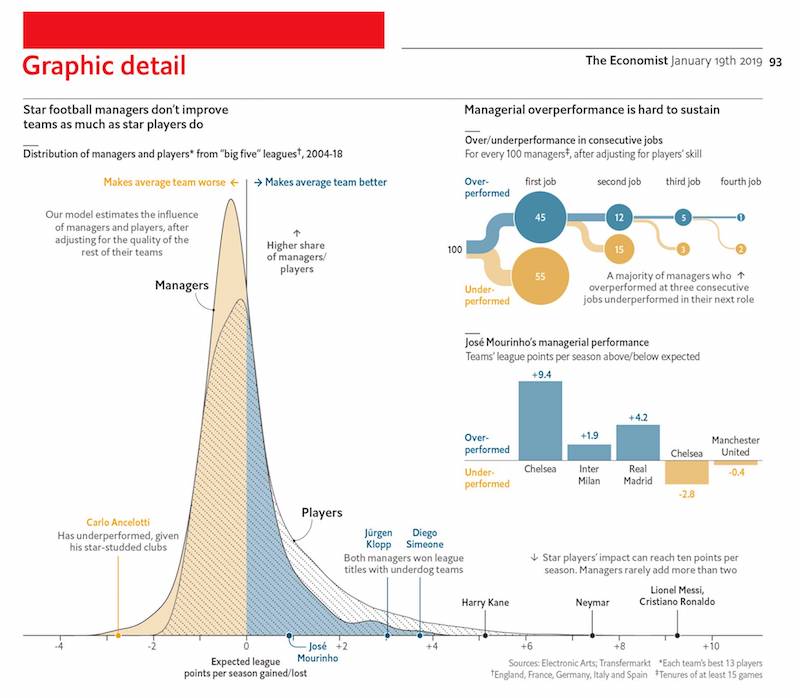
The Economist is mostly known for reporting on business, politics and economics but it has now expanded into sports coverage in a bid to grow its audience.
Its data team uses sports analytics to produce editorial showing that managers in football matter much less than most fans think or how English clubs re-conquered European football. They also launched a new golf predictive model for the golf majors and a data-driven piece on the increasing popularity of Cricket.

Behind the initiative is data editor Dan Rosenheck and his passion for sports which he also channels to The Economist’s sports blog Game theory. Another advantage of covering sports is that it provides readily available, clean and comprehensive data.
"It's enough to go on baseballreference.com and I'm swimming in data that someone else has compiled and cleaned," said Rosenheck.
"Journalistic coverage of sports in the US has become quite saturated. An average American sports fan has not only a decent data literacy but also higher expectations when it comes to data-driven sports reporting.
"Whereas in the UK, an alarming share of popular sports coverage is still pretty innumerate and that creates market a opportunity for us."
Although data-driven sports content published online and on the back page of the print issue is aimed at a niche audience, the publisher sees it as an opportunity to grow a new pool of readers and subscribers.
"The biggest obstacle to getting new subscribers is people thinking that The Economist only covers economics. So anything we can do to showcase the breadth of what we cover is a help," said Rosenheck.
Four out of fifty features the data team produces a year are linked to sports. To give them a better exposure, in addition to the Game theory sports blog, there is the Graphic detail blog that features charts, maps and infographics.
Another avenue the data team is exploring to give their sports stories a new lease of life is podcasts and social media, such as Instagram, IGTV Stories or Snapchat, where the publisher has already built up a following.
"Producing one page takes about one month's worth of labour," said Rosenheck, adding that the publisher is keen to give more exposure to the sports content, given the important investment.
The data unit is well known for other successful data-driven features, such as this interactive feature on forecasting the US voting tendencies.
Free daily newsletter
If you like our news and feature articles, you can sign up to receive our free daily (Mon-Fri) email newsletter (mobile friendly).









